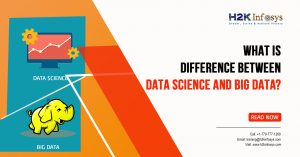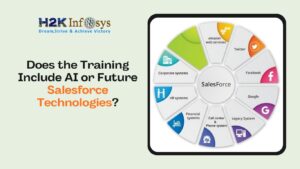In the ever-evolving landscape of technology, choosing the right career path can be a daunting task. Two of the most sought-after roles in the tech industry today are Data Analyst and Web Developer. Both careers offer exciting opportunities, strong job prospects, and the potential for significant impact. However, they differ in their skill sets, daily responsibilities, and long-term career trajectories. If you’re considering a career in tech and are torn between these two roles, this comprehensive guide will help you understand the key differences, the skills required, and the career opportunities associated with each, ultimately helping you decide which path is right for you.
Understanding the Roles: Data Analyst vs. Web Developer
Data Analyst
A Data Analyst is a professional who collects, processes, and analyzes data to help organizations make informed decisions. The primary role of a Data Analyst is to transform raw data into meaningful insights that can drive business strategy, optimize processes, and identify trends. Data Analysts work across various industries, including finance, healthcare, marketing, and more.
Key responsibilities of a Data Analyst include:
- Collecting and cleaning data from various sources.
- Analyzing data sets to identify patterns, trends, and anomalies.
- Creating visualizations and reports to present findings to stakeholders.
- Using statistical tools and software to interpret data.
- Collaborating with other departments to understand data needs and provide actionable insights.
Web Developer
A Web Developer is responsible for designing, building, and maintaining websites and web applications. Web Developers ensure that websites are functional, user-friendly, and visually appealing. They work closely with designers, content creators, and other developers to bring a website from concept to reality.
Key responsibilities of a Web Developer include:
- Writing clean, efficient, and well-documented code.
- Developing and maintaining websites and web applications.
- Ensuring websites are responsive and optimized for various devices.
- Collaborating with designers and content creators to implement website features.
- Debugging and troubleshooting issues with websites.
- Staying up-to-date with the latest web technologies and trends.
Skills Required for Data Analysts and Web Developers
The skill sets required for Data Analysts and Web Developers differ significantly, reflecting the distinct nature of each role.
Skills for Data Analysts:
- Data Analysis and Interpretation: Data Analysts must be skilled in analyzing large data sets and interpreting the results to provide actionable insights. This requires a strong understanding of statistical methods and data analysis techniques.
- Tools and Software: Familiarity with tools like Excel, SQL, Python, R, and data visualization tools such as Tableau or Power BI is essential for Data Analysts.
- Critical Thinking: Data Analysts need to approach problems logically and analytically to draw meaningful conclusions from data.
- Attention to Detail: Ensuring data accuracy and integrity is crucial, as even small errors can lead to incorrect conclusions.
- Communication Skills: Data Analysts must be able to present their findings clearly and concisely to non-technical stakeholders, often through reports and visualizations.
Skills for Web Developers:
- Programming Languages: Web Developers need to be proficient in languages like HTML, CSS, JavaScript, and possibly others like Python, Ruby, or PHP, depending on the job requirements.
- Front-End Development: Knowledge of front-end frameworks like React, Angular, or Vue.js is essential for creating interactive and user-friendly interfaces.
- Back-End Development: Understanding back-end technologies, databases (such as MySQL, MongoDB), and server management is important for those involved in full-stack development.
- Responsive Design: Web Developers must ensure that websites function seamlessly across various devices and screen sizes, requiring a good grasp of responsive design principles.
- Problem-Solving Skills: Like Data Analysts, Web Developers need strong problem-solving skills to debug code and troubleshoot issues.
- Creativity and Design Sense: While not always required, a good eye for design and user experience can be a valuable asset for Web Developers.
Career Opportunities and Job Prospects
Both Data Analysts and Web Developers enjoy strong job prospects, but the opportunities available can vary based on industry demand, geographic location, and the specific skills a candidate brings to the table.
Data Analyst Career Opportunities:
- Industry Demand: Data-driven decision-making is becoming increasingly important across industries, driving demand for skilled Data Analysts. Sectors such as finance, healthcare, marketing, and e-commerce have a particularly high demand for these professionals.
- Job Titles: Common job titles for Data Analysts include Business Analyst, Data Scientist, Market Research Analyst, and Operations Analyst. As they gain experience, Data Analysts may advance to roles such as Senior Data Analyst, Data Science Manager, or Chief Data Officer.
- Salary Potential: According to industry reports, Data Analysts in the United States can expect to earn an average salary ranging from $60,000 to $85,000 per year, with higher earnings possible for those with specialized skills or experience.
- Career Growth: Data Analysts have the opportunity to specialize in areas like machine learning, big data, or data engineering, which can lead to advanced roles and higher salaries. The field of data science, in particular, offers significant growth potential.
Web Developer Career Opportunities:
- Industry Demand: The demand for Web Developers continues to grow as more businesses and organizations establish an online presence. This demand spans across industries, from tech startups to large corporations, educational institutions, and non-profits.
- Job Titles: Web Developers may hold titles such as Front-End Developer, Back-End Developer, Full-Stack Developer, Web Designer, or Software Engineer. With experience, they can advance to roles like Lead Developer, Development Manager, or Chief Technology Officer (CTO).
- Salary Potential: Web Developers in the United States can expect to earn an average salary ranging from $70,000 to $100,000 per year, depending on their expertise, location, and the complexity of the projects they work on.
- Career Growth: Web Developers have the flexibility to specialize in various areas, such as front-end development, back-end development, or mobile app development. The continuous evolution of web technologies also provides opportunities for lifelong learning and career advancement.
Work Environment and Daily Routine
The work environment and daily routine for Data Analysts and Web Developers can differ significantly, influencing your choice of career based on your personal preferences and work style.
Data Analyst Work Environment:
- Collaboration: Data Analysts often work closely with other departments, such as marketing, finance, and operations, to understand their data needs and provide insights that drive decision-making. Collaboration and communication are key aspects of the role.
- Problem-Solving: Much of a Data Analyst’s day is spent cleaning, organizing, and analyzing data. This requires a meticulous approach to problem-solving and a focus on accuracy.
- Reporting: A significant portion of the job involves creating reports and visualizations to present findings to stakeholders. This often requires a good understanding of the audience’s needs and the ability to communicate complex data in an easily digestible format.
- Tools: Data Analysts typically work with various software tools for data analysis, visualization, and reporting. The job often involves sitting at a desk for extended periods, working on a computer.
Web Developer Work Environment:
- Creativity: Web Developers often engage in creative problem-solving, designing user-friendly interfaces, and building functional web applications. This role offers a mix of technical and creative work.
- Coding: The majority of a Web Developer’s day is spent writing, testing, and debugging code. This requires strong concentration and attention to detail.
- Collaboration: Web Developers work closely with designers, project managers, and other developers. Effective communication and teamwork are essential, especially in larger projects.
- Flexibility: Many Web Developers enjoy a high degree of flexibility in their work environment, with opportunities for remote work, freelance projects, or even starting their own web development business.
Educational Pathways and Learning Curve
The educational requirements and learning curve for Data Analysts and Web Developers differ, which may influence your decision based on your current skill set and educational background.
Educational Path for Data Analysts:
- Degree Requirements: While not always mandatory, many Data Analysts hold a bachelor’s degree in fields such as computer science, statistics, mathematics, or economics. Some roles, particularly in specialized fields like finance or healthcare, may require advanced degrees.
- Learning Curve: The learning curve for Data Analysts can be steep, particularly when it comes to mastering statistical methods and advanced data analysis tools. However, those with a strong foundation in math and statistics may find it easier to transition into this role.
Educational Path for Web Developers:
- Degree Requirements: A formal degree is not always required to become a Web Developer, although many professionals hold degrees in computer science, web development, or related fields. Self-taught developers and those who complete coding bootcamps can also find success in this field.
- Certifications: Web Developers can benefit from certifications in specific programming languages, frameworks, or platforms, such as those offered by Adobe, Microsoft, or Google. Completing coding bootcamps or online courses can also provide practical experience and portfolio projects.
- Learning Curve: The learning curve for Web Developers can vary depending on the complexity of the projects they work on. Beginners may start with basic HTML, CSS, and JavaScript before advancing to more complex frameworks and back-end development.
Which Career Path Is Right for You?
Choosing between a career as a Data Analyst and a Web Developer ultimately depends on your interests, strengths, and long-term goals. Here are some factors to consider when making your decision:
- Interest in Data vs. Development: If you enjoy working with data, analyzing trends, and providing insights that drive business decisions, a career as a Data Analyst may be more fulfilling. On the other hand, if you are passionate about building websites, coding, and creating user-friendly digital experiences, a career as a Web Developer could be the right choice.
- Problem-Solving Approach: Data Analysts often approach problems through a logical and analytical lens, focusing on data accuracy and interpretation. Web Developers, however, may thrive in a creative problem-solving environment, where they can design and build innovative web solutions.
- Career Flexibility: Both careers offer flexibility and growth opportunities, but they differ in the types of projects and industries you can work in. Data Analysts may have opportunities in various sectors, from finance to healthcare, while Web Developers can work in tech companies, agencies, or as freelancers.
- Work Environment Preference: Consider whether you prefer a more collaborative role that involves working with data and communicating insights to stakeholders, or a more independent role focused on coding and web development.
Conclusion
Both Data Analysts and Web Developers play critical roles in the tech industry, and each career path offers unique opportunities and challenges. By carefully considering your interests, skills, and long-term goals, you can choose the career path that aligns best with your aspirations. Whether you decide to pursue data analysis or web development, both careers offer the potential for growth, innovation, and success in the dynamic world of technology.


























